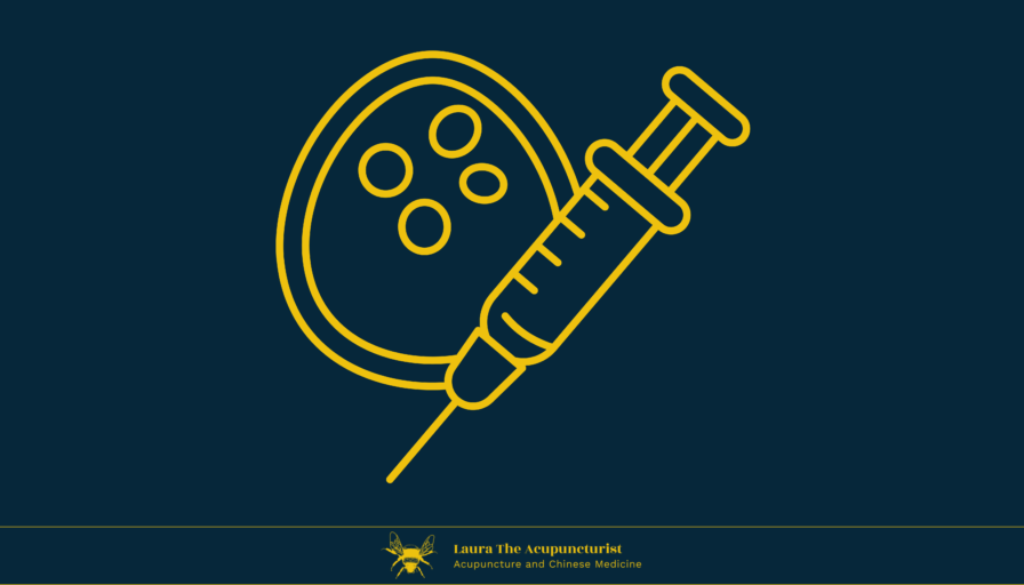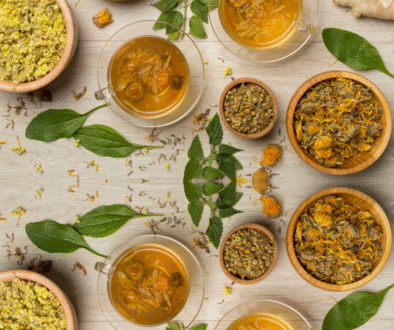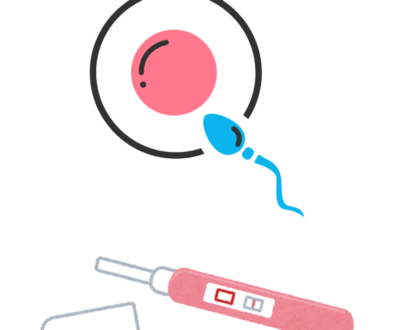Your IVF Journey with TCM Support
How Acupuncture and Chinese Herbal Medicine Can Support You Through Your IVF Journey
Embarking on an IVF journey can be an emotional rollercoaster—filled with hope, stress, and sometimes frustration. But did you know that Traditional Chinese Medicine (TCM): acupuncture and Chinese herbal medicine, can be a powerful ally to support you throughout the IVF process? Many couples are now incorporating TCM as part of their fertility plans, and with good reason. Acupuncture and herbal medicine can boost your overall health, support you during each IVF stage, and even improve your chances of success.
Here, we explore how acupuncture and Chinese herbal medicine can play a role in your IVF treatment, and why more people are turning to these holistic practices for support.
1. Preparing for IVF: The Pre-Treatment Phase
The preparation phase is crucial. About 3 to 6 months before starting your IVF treatment cycle, is the perfect time to focus on preparing your body. This is when acupuncture and herbal medicine shine.
It takes over a year for ovarian follicles to develop from their dormant stage to being ready for ovulation. During the last few months leading up to egg retrieval, weekly acupuncture can improve the follicular development by boosting blood flow to the ovaries and helping nourish the developing follicles. Enhanced blood flow means better quality eggs—and better quality eggs mean better chances of success.
Herbal medicine during this stage can also play a key role in balancing hormones and ensuring your body is in the best possible shape for IVF. These herbs are tailored to each individual—your practitioner will create a personalised plan based on your specific needs, with the aim of creating an optimal environment for egg development.
2. The Downregulation Phase
The next stage is the pre-treatment or downregulation phase, which usually lasts up to three weeks. This part of the IVF process is designed to quiet the ovaries, preparing them for stimulation.
Acupuncture during this phase can be incredibly helpful in reducing stress—something so many IVF patients experience—and alleviating the side effects of the medications. Less stress and more relaxation can also positively impact your overall hormonal balance, which is key during IVF. Acupuncture can also help recruit more follicles, increasing your chances of a successful cycle.
3. Ovarian Stimulation and Egg Retrieval
Ovarian stimulation involves the use of hormones to stimulate your ovaries to produce multiple eggs. During this phase, many women find acupuncture helps the ovaries respond well to the hormone treatment. Acupuncture encourages blood flow to the ovaries and uterus, helping develop the endometrial lining, which is essential for embryo implantation.
Herbal medicine can also support you during this phase by nourishing the body, supporting the hormonal response, and helping to minimise any side effects from the hormone medications.
4. The Embryo Transfer
Embryo transfer is the most delicate part of the process. This is when an embryo is placed in the uterus in the hope that it will implant and result in a healthy pregnancy.
Acupuncture treatments immediately before and after embryo transfer have been shown to improve success rates significantly. These sessions help promote relaxation, reduce uterine contractions, and ensure optimal blood flow to the uterus—all of which help support implantation.
5. Luteal Phase and Early Pregnancy
After the embryo transfer, the luteal phase is all about waiting and hoping. This is a time filled with anxiety for many. Acupuncture can help keep stress levels in check, promoting relaxation during the dreaded Two-Week Wait.
If pregnancy occurs, acupuncture can continue to play a role by supporting early pregnancy and reducing the risk of miscarriage. Chinese herbs may also be used, but this will depend on the individual and should only be prescribed by a qualified herbal practitioner who specialises in fertility care.
Does Acupuncture Really Increase IVF Success Rates?
Yes! Acupuncture has been shown to significantly improve IVF success rates. A recent meta-analysis reviewed data from over 25 randomised controlled trials involving nearly 5,000 participants. The results revealed that acupuncture can increase IVF live birth rates by 33.8%. This evidence is why acupuncture is one of the most popular complementary therapies used during IVF.
Acupuncture works by regulating hormone levels, improving blood flow to the uterus, and reducing stress—all of which are vital for supporting fertility. Many patients find that acupuncture not only helps physically but also offers valuable emotional support, providing a sense of calm and control during a stressful time.
Chinese Herbal Medicine Throughout IVF
Chinese herbal medicine can also be a fantastic tool to support IVF, but it requires an expert approach. Every herbal prescription is tailored to the individual, with the goal of creating the best possible internal environment for conception.
During IVF, herbs are used to support hormonal regulation, improve egg quality, boost the immune system, and support the uterus. Herbal medicine can also help with energy levels, digestive health, and emotional well-being—all key factors for fertility.
However, it is very important to only work with a qualified herbalist who understands the intricacies of IVF treatment. The herbs need to be carefully balanced, and timing is crucial to ensure they complement—not interfere with—the medication used during IVF. The correct herbs are safe to take throughout your fertility and IVF journey and when prescribed by a professional and taken at the correct time as prescribed, they will also be safe to take during pregnancy. Remember herbs are what they say on the tin – herbs, there are no mineral or animal products used in the UK and if sourced from reputable places, each batch is checked for safety and efficacy.
What to Expect from Acupuncture During IVF
If you’re considering acupuncture during IVF, expect to feel listened to and supported. Your practitioner will take a detailed history, including information about your medical background, lifestyle, stress levels, sleep quality, and menstrual health. Acupuncture treatments are then designed specifically for you—targeting areas that need support. During your luteal phase and closer to your embryo transfer date, it’s important for you to know that there are no acupuncture points used that cause any risk to pregnancy (this is why it’s so important to see an experienced acupuncturist).
Treatments usually last around 20-30 minutes, during which you’ll have the opportunity to relax and de-stress—something incredibly valuable when going through IVF. The frequency of sessions will depend on your individual needs, but it’s often weekly, or more frequently during key stages like egg retrieval and embryo transfer.
Choosing the Right Practitioner
Choosing the right acupuncturist for your IVF journey is key. Look for someone with specialised training and experience in fertility acupuncture. They should be well-versed in both Western and Chinese medicine and understand the intricacies of assisted conception. At our clinic, we have advanced-level specialisation with extensive training in fertility support, ensuring that you’re in experienced hands.
Conclusion: A Holistic Approach to IVF
Acupuncture and Chinese herbal medicine offer a holistic approach to supporting your IVF journey. Whether it’s about preparing your body for treatment, improving egg quality, reducing stress, or enhancing implantation, these therapies can provide meaningful support at every stage of the process. With a 33.8% increase in live birth rates reported by recent studies, it’s clear that acupuncture can make a real difference.
If you’re considering adding acupuncture or Chinese herbal medicine to your IVF journey, get in touch with us. We’re here to support you through every step—mind, body, and spirit.




